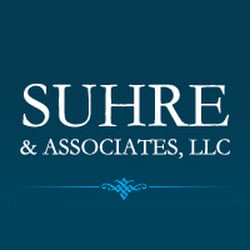
What You Need To Know
Class counsel says “class members of the Wells Fargo TCPA settlement include all wireless cell phone subscribers or users in the United States who, between April 1, 2011 and March 30, 2016, received a call or text message from Wells Fargo Dealer Services in connection with an automobile retail installment sales contract, and the call or text was made using an automated dialing technology or an artificial or prerecorded voice.” Class members who want to challenge any section of the settlement or opt out of the agreement must take action by August 21, 2017.
The potential award is between $20 and $50 and to receive monetary damages, consumers must file a valid claim form by September 20, 2017. Award amounts depend on the number of eligible class members who file valid claims. A judge has scheduled the final hearing date for Frederick Luster v. Wells Fargo Dealer Services Inc., Case No. 1:15-cv-01058-TWT, in the U.S. District Court for the Northern District of Georgia on November 2. Visit the class action settlement website at www.LusterWellsFargoTCPA.com to learn the time of the final hearing.
The Telephone Consumer Protection Act (TCPA) protects consumers against receiving unsolicited phone calls from companies and organizations that use recorded or artificial voices. It appears Wells Fargo either forgot about the TCPA or blatantly ignored the statutes written into the groundbreaking law. A recent class action settlement between Wells Fargo Dealers Services, Inc. and a group of plaintiffs concerns allegations that the division of Wells Fargo Bank used automated telephone dialing systems, without the consent of consumers in violation of the TCPA. The Wells Fargo class action lawsuit further claims the company sent recorded messages to consumers, which also violates one provision of the TCPA
Lead plaintiff Frederick Luster filed the Wells Fargo Dealer Services class action lawsuit on April 8, 2015. Luster alleges Wells Fargo violated several provisions of the TCPA, including using automated phone dialing systems that send recorded or artificially made messages, without his consent.
Congress passed the TCPA to prevent telemarketers from harassing consumers at inconvenient times, which often involved annoying phone calls during meals. The TCPA stipulates that violators of any TCPA statute must pay fines that range from $500 to $1,500 per violation.
Wells Fargo has denied the allegations since the filing of the lawsuit by Luster. However, the banking company has agreed to pay nearly $15 million to settle the class action lawsuit, as opposed to losing more money during extended litigation. A judge preliminarily approved the class action settlement on February 23, 2017, with a subsequent preliminary order that changed settlement deadlines approved on March 30, 2017.
Class counsel for the far reaching class action settlement includes multiple law firms, such as Skaar and Feagle LLP, Keogh Law LTD, and the Law Offices of Douglas J. Campion APC. Wells Fargo has hired John C. Lynch and David M. Gettings to represent the defense counsel.


